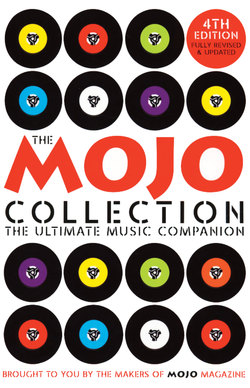Читать книгу The Mojo Collection - Various Mojo Magazine - Страница 120
На сайте Литреса книга снята с продажи.
The Byrds The Notorious Byrd Brothers Recorded amid group turmoil, this unexpectedly emerged as their most gentle and reflective work.
ОглавлениеRecord label: Columbia
Produced: Gary Usher
Recorded: CBS, Hollywood, June 21–December 6, 1967
Released: January 3, 1968 (UK) April 12, 1968 (US)
Chart peaks: 12 (UK) 47 (US)
Personnel: Roger McGuinn (g, v, syn); David Crosby (g, v); Michael Clarke (d); Chris Hillman (b); Jim Gordon (d); Clarence White (g); Red Rhodes (pedal steel); Paul Beaver (moog); Roy Halee (e); Don Thompson (ae)
Track listing: Artificial Energy; Goin’ Back; Natural Harmony; Draft Morning; Wasn’t Born To Follow; Get To You; Change Is Now; Old John Robertson; Tribal Gathering; Dolphin’s Smile; Space Odyssey
Running time: 28.30
Current CD: Sony Legacy 4867512 adds: Moog Raga; Bound To Fall; Triad; Goin’ Back; Draft Morning; Universal Mind Decoder
Further listening: Younger Than Yesterday (1967)
Further reading: The Byrds: Timeless Flight Revisited (Johnny Rogan, 1997)
Download: Not currently legally available
The Byrds were at the peak of their artistic powers in 1967 and following the celebrated Younger Than Yesterday looked likely to climb new heights as a creative force. Unfortunately, they were also being eaten away from within. The rivalry between McGuinn and Crosby over leadership and direction continued to fester, most notably at the crucial Monterey festival where David Crosby played the counter-culture king, advocating LSD use and telling the world that the Kennedy assassination was a hushed-up conspiracy. To top it all, he appeared onstage with the Buffalo Springfield. ‘They were very upset when he played with them,’ manager Jim Dickson recalled. ‘There was a big dilemma. David seemed as if he was intent on destroying the group. I’m sure he didn’t see it that way. It was compulsive behaviour.’
In August, The Byrds commenced work on their new album, but friction in the studio threatened to overwhelm them. Apart from the bickering between McGuinn and Crosby, there was an ongoing battle with drummer Michael Clarke who responded to David Crosby’s condescension with the priceless, ‘What do you know, man? You’re not a musician.’ More problems ensued when McGuinn and Hillman rejected Crosby’s ménage à trois ballad Triad as tasteless. He rebelled by declining to play on the Goffin & King number Goin’ Back. With emotions running high, McGuinn and Hillman drove over to Crosby’s house and told him he was fired. Gene Clark was recalled, but only lasted three weeks and contributed nothing to the album. By the end of the sessions, Michael Clarke had joined the ranks of ex-Byrds.
The final product should have been a disjointed mess but instead was breathtaking – evocative songs made otherworldly by Gary Usher’s innovative use of phasing, reversed tapes, string sections and synthesizers. The Byrds survived destabilising line-up changes during this period and would go on to record six more albums, but they would never again find the magic or mystery unveiled during this time of unprecedented internecine strife.
